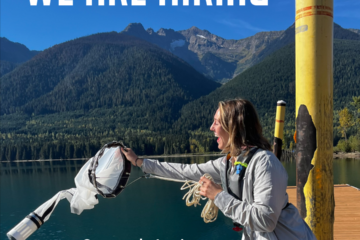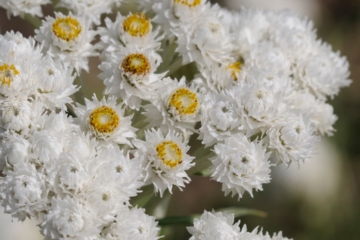Threat of Invasive Mussels Continues as Domestic Travel is Encouraged
Invasive zebra and quagga mussels have been introduced into many water bodies in eastern Canada, but as yet, are not known in parts of Canada west of Manitoba. Increased domestic travel due to the pandemic could see many more infested watercraft traveling west and increasing the risk of infesting British Columbia waters.
“The only way to prevent the spread of invasive mussels is to make sure that every watercraft entering BC is inspected at a Provincial watercraft inspection station, which are run by the Conservation Officer Service,” said Sue Davies, Aquatic Coordinator for the Columbia Shuswap Invasive Species Society (CSISS), adding “so far this season watercraft inspection stations have intercepted 10 mussel fouled watercraft”. We encourage Columbia Shuswap residents to talk to their out-of-province friends and family about the importance of watercraft inspection.
Invasive zebra (Dreissena polymorpha) and quagga (D. bugensis) mussels can travel as hitchhikers on watercraft due to their ability to attach to surfaces such as boat hulls and propellers, and to their tolerance for being out of the water for many days. Invasive mussels can withstand up to 30 days out of the water and could easily survive the drive across country on either a trailered boat or a canoe.
The Provincial watercraft inspectors determine the risk level of the watercraft depending on where and when it was last in the water. “If the watercraft is determined to be low risk, then the traveler is free to go; if it is high risk, travelers may be required to have their boat decontaminated, which is free to the traveler,” said Davies. “The consequence of travelers with watercraft not stopping at an inspection station is a swift fine, and the potential to destroy BC beaches, environments, and cost BC millions every year, so best to take the few minutes to stop in, and help prevent the spread of invasive species,” she added.
Provincial watercraft inspection stations are situated mostly along BC’s southern and eastern borders. If a station is open, then it is mandatory for all travelers with watercraft, including paddleboards and canoes, to stop.
Travellers bringing watercraft to BC are encouraged to visit the provincial website, https://www2.gov.bc.ca/gov/content/invasive-mussels/bringing-your-boat-to-bc, and suspected invasive mussels should be reported to the Conservation Officer Service Report All Poachers and Polluters (RAPP) line at 1 877 952-7277.
The BC Government’s Invasive Mussel Defence Program is responsible for inspecting all watercraft entering BC and overseeing the invasive mussel lake monitoring program to sample waterbodies for invasive zebra and quagga mussels. Local invasive species societies like the Columbia Shuswap Invasive Species Society (CSISS) run outreach campaigns about how to prevent the spread of invasive species, and do much of the sampling of priority waterbodies in the Columbia Shuswap region as part of the Provincial lake monitoring program. So far this season, the Province has reported that all samples tested to date for invasive mussels within BC are negative. CSISS thanks the Province of BC, Habitat Conservation Trust Foundation, and the Shuswap Watershed Council for funding this important work.
Other aquatic invasive species such as Eurasian watermilfoil (Myriophyllum spicatum) and curly pondweed (Potamogeton crispus), are already present in some BC lakes. Cleaning, draining and drying all watercraft when moving them between waterbodies will help prevent their spread within BC freshwaters.
The Columbia Shuswap Invasive Species Society is a non-profit organization dedicated to the prevention, management and reduction of invasive species in the Columbia Shuswap Regional District. CSISS is thankful for the generous support of the Habitat Conservation Trust Foundation, Shuswap Watershed Council, Columbia Basin Trust, the Columbia Shuswap Regional District, and the Province of BC.
To learn more about invasive species in the Columbia Shuswap region please visit: http://www.columbiashuswapinvasives.org


